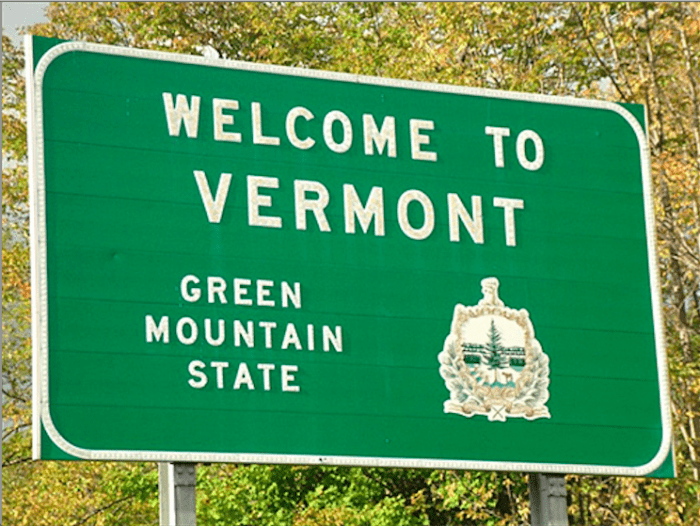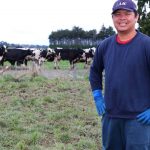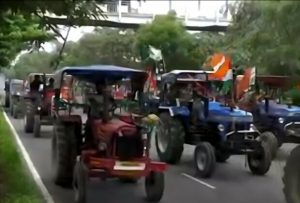
We are fortunate in Vermont to have so many locally owned food co-ops, grocery stores, farm stands and farmers’ markets, which offer fresh produce, meats, milk, cheeses and more throughout the year. But at most supermarkets and convenience stores where the majority of people buy their food, where do you imagine their products come from? Do you picture small, local, independent farms and ranches? That might have been true decades ago, but today, a few powerful corporations dominate the food industry, making it extremely hard for smaller farms to compete.
Family farm debt and bankruptcies are on the rise in Vermont and across the country, with thousands of producers filing Chapter 12 during the past decade. The state Agency of Agriculture’s January Dairy Data Update shows that the number of small and medium dairy farms in Vermont has decreased substantially since 2012, while the number of large farm operations has more than doubled. Case in point, a few weeks ago nearly 90 organic dairy farms in the Northeast (including 28 farms in Vermont) were sent a notification by Danone — a multinational agribusiness conglomerate that owns Horizon Organic — that their contracts will be terminated in 2022.
You would think that federal relief programs would support the struggling small farmer, but sadly, most of that support has gone to the largest and wealthiest agribusinesses. Of the $4.9 billion in COVID-related assistance funding in 2020 for the entire United States, more than three-quarters of it went to the top 20% of producers. In Vermont, nondairy agricultural businesses, forestry operations and value-added food products businesses, were initially left out of consideration for COVID relief funds entirely — yet Rural Vermont, Northeast Organic Farming Association and other agricultural organizations lobbied the state Legislature to place more than $6 million into the state’s COVID-19 Agricultural Assistance Program. Our immigrant neighbors and farm workers without immigration status would likewise have been neglected by government relief efforts had it not been for the advocacy of Migrant Justice, farm worker leaders, and others working in solidarity to successfully pass the Vermont Coronavirus Economic Stimulus Equity Program, which provided more than $5 million to support these communities.
It used to be that federal aid programs ensured farmers got a fair price based on their cost of production and kept big businesses from controlling the market. But for most of the past 50 years, farm policy decisions have been stacked in favor of economies of scale and the consolidation and concentration of corporate power, pushing smaller-scale operations out of business. These practices have been particularly harmful to Black farmers whose families have faced a long history of systemic racism and white supremacy in the United States, and well more than a century of discrimination by the USDA. According to some estimates, the USDA’s discriminatory practices have robbed Black Americans of $300 billion in wealth and made all family farmers poorer and more powerless in the process.
Small and medium scale farmers — white and Black — are hurting. Our neighbors and our main streets in rural America are in crisis. So let’s deal with the problem at its root: Repair the harm done to Black farmers, stop facilitating the consolidation and concentration of agriculture, stop bailing out big agricultural corporations with taxpayer dollars, and start nourishing the small and medium independent farms that disseminate the very skills, products and relationships that our communities rely upon for survival.
Just as any crop needs sun and soil, we need better policies and programs that build on each other to lift all of us up: Right now that means unlocking aid for farmers of color and urging our Sens. Patrick Leahy and Bernie Sanders to continue to move forward on their proposed bill — the Relief for America’s Small Farmer’s Act — to provide debt relief for all small-scale family farmers.
The fates of all farmers are bound together. It’s only by combining our efforts and working in solidarity with one another that we can all begin to breathe again.
Graham Unangst-Rufenacht is policy director with Rural Vermont. He lives in Marshfield, and is a board member of the National Family Farm Coalition. He is the owner/operator of Robinson Hill Beef, a grass-fed and finished beef operation in Plainfield.























